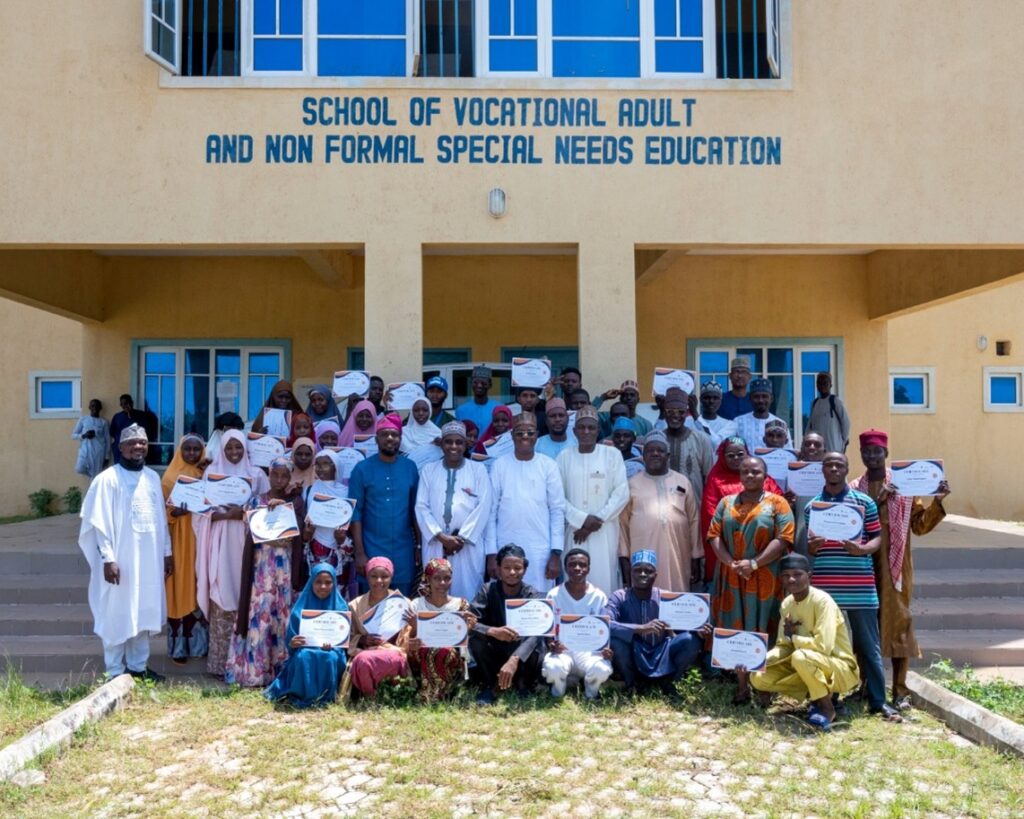Pre-STEP Phase 1 Complete: New Era for Nigerian Teacher Education
By Oluwafisayo Ayodeji (PhD)
The future of education in Nigeria depends on the strength of its teachers, and preparing those teachers begins long before they step into classrooms. The Pre-Service Teacher Education Project (Pre-STEP) was designed to transform how teachers are trained by equipping pre-service teachers with the pedagogy, content knowledge and technology needed for effective 21st-century teaching. Implemented by Sydani Group and CEBAR Consultancy in partnership with the National Commission for Colleges of Education (NCCE), Pre-STEP has now successfully completed the first phase of its implementation across six participating Colleges of Education (CoEs) in Nigeria.
From the outset, collaboration with stakeholders has been central to the project’s success. The NCCE provided not only leadership but also active participation through its top officials. Notably, the Executive Secretary (ES), Prof. Paulinus Chijioke Okwelle, joined the field team on the Quality Assurance (QA) visits. Where he wasn’t present, senior officials including Mr. Razaq Adeyemi Badmus, Ag. Director, Department of Education Support Services and International Partnerships; Dr. Iquo Mkpa Okon, Head of Curriculum Development; and Mr. Lawal Ayoola Abdulwaheed, Principal Education Officer represented the NCCE. Their involvement underscored the Commission’s commitment to quality teacher preparation and reinforced stakeholder buy-in at all levels.
To ensure delivery met the required standards, each participating CoE received two rounds of QA visits. The first visit focused on the intervention group where we observed classroom delivery of the 4-in-1 model and provided facilitators with constructive feedback. We also delivered the first module of the Gender-Responsive Pedagogy (GRP) training to the control group. The second visit involved deeper observation of classroom delivery (4-in-1 model), delivery of the second GRP module, administration of post-tests to both intervention and control groups, and presentation of Certificates of Participation to pre-service teachers who completed the programme. This structured QA process was essential not only for maintaining consistency across Colleges but also for gathering data to inform the next stages of project implementation.
Although the 4-in-1 model was originally intended to be delivered concurrently across all six Colleges, differences in academic calendars required a phased approach. As a result, the Colleges were grouped into two batches: Batch One (April–June 2025): Federal College of Education (Special), Oyo; FCT College of Education, Zuba; and Akwa Ibom State College of Education, Afaha Nsit. Batch Two (July–September 2025): Federal College of Education (Technical), Bichi (Kano State); Enugu State College of Education, Enugu and College of Education Zing, Taraba State. Our phased approach ensured that implementation aligned with the academic calendar of each institution while preserving the integrity of the quasi-experimental research design.
At the heart of Pre-STEP is rigorous evidence generation. In each College, about 120 pre-service teachers were selected from different departments to participate — 60 in the intervention group and 60 in the control group. To safeguard against attrition, classes were oversampled to around 70 participants. Importantly, participation was voluntary, coordinated closely with school management, and guided by the principles of inclusion. No student was excluded based on gender, disability, or background — ensuring equity and fairness throughout. The intervention group benefitted from the innovative 4-in-1 model, which integrates pedagogy, technology-enhanced learning, subject content mastery, and reflective practice. Meanwhile, the control group received Gender-Responsive Pedagogy (GRP), a valuable training module that kept them engaged, minimized attrition, and preserved equity within the research framework.
The QA visits offered opportunities to highlight the role of stakeholders in practice, especially the ES of NCCE who observed the delivery of the models first hand. In both Akwa Ibom State CoE, Afaha Nsit, and the Federal College of Education (Technical), Bichi, Kano State, the QA team led by the ES of NCCE, Prof Okwelle observed classroom delivery with over 60 pre-service teachers each in the 4-in-1 intervention group and the GRP control group. In particular, the visit of the ES in Kano coincided with the wrap up of the project at the College, hence, the participants in Kano had the honour of being awarded their Certificates of Participation by Prof. Okwelle, alongside the College management team led by the Provost, Dr. Bashir Sabo Abubakar. This symbolic event underscored the project’s impact and the NCCE’s commitment to celebrating student achievements.


By the end of the intervention, the project had achieved remarkable participation and completion rates with over 350 pre-service teachers successfully completing the 4-in-1 model training and about same number of pre-service teachers completing the GRP module in the control groups, across the six Colleges. The balance between intervention and control groups ensures the reliability of research outcomes, while also delivering tangible skills to all participants.
The completion of first-level implementation across the six Colleges marks an important milestone, but it is only the beginning. The next phase of the project will extend into primary schools, where pre-service teachers will put their learning into practice, applying the 4-in-1 model directly in real classrooms. This progression will not only test the model in authentic teaching contexts but also generate insights into how pre-service training translates into improved learning outcomes for pupils.
With each phase, Pre-STEP reinforces its commitment to strengthening teacher preparation and shaping the future of education in Nigeria. By investing in teachers at the foundational stage of their careers, the project ensures that the ripple effects will be felt in classrooms across the country for years to come.



